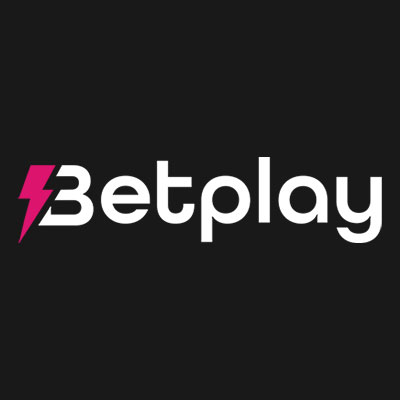Monero’s privacy-focused approach gives it the edge over coins such as Bitcoin, and Ethereum. In particular, Monero is desirable amongst online crypto casinos and players.
In order to fully grasp the uniqueness of the coin, we’ll look at what makes Monero (XMR) special and how it remains untraceable.
What is Monero (XMR) and How Does it Work?
Monero, launched in 2014, is an open-source cryptocurrency that uses XMR as its native token. The coin is a community-driven and crowdfunded project, funded entirely by donations from its website.
Monero is often called the “privacy coin,” although it’s also known as a CryptoNote coin. The coins CryptoNote protocol aims to provide anonymous cryptocurrencies through cryptography and advances in mathematics.
Cryptography simply refers to coding information with mathematical techniques that prevent third parties or the public from reading private messages.
In particular, Monero’s privacy components are at the heart of the cryptocurrencies success. Monero makes use of the latest cryptographic implementations to obscure its blockchain network.
So, how exactly does Monero achieve anonymity? The cryptocurrency does this through key pairs and ring signatures, which provide the sender and receiver privacy and disguise the transaction's signature.
Moneros CryptoNote code base uses ring signatures to operate as digital signatures. Ring signatures hide the original signature of the sender by grouping it with other signatures from previous transactions in the network.
The randomization of signatures is key for crypto casinos and players, which make thousands of daily transactions. It’s virtually impossible for governmental institutions, like the IRS, to trace who signed the transaction.
Furthermore, ring signatures are used to verify the authenticity of a transaction's signature. Therefore, making it possible for players to make deposits and withdrawals from online casinos.
Monero combines ring signatures with key cryptography, which every other cryptocurrency uses. Unlike Bitcoin, which uses one key pair, a private and public key, Monero uses two key pairs.
Monero’s two key pairs are a “spend key” and a “view key.” Each key pair has its own private and public key. Every Monero transaction is encrypted with private and public keys to remain anonymous.
Why Monero Has No Close Competitors
Approximately 22 000+ cryptocurrencies are available, including stable and memecoins. However, Monero is the only private-focussed coin that comes to mind.
Despite being banned by several crypto exchanges, Monero’s XMR remains the privacy coin of choice. XMR is ranked amongst the top 30 cryptocurrencies, reaching its highest value of $542, back in 2018.
Currently, Monero’s XMR trades around $160 per coin. There’s no denying that the coin’s market value has significantly dropped, but then again so has the overall crypto market.
In comparison to other anonymity coins, XMR is by far the highest priced. Any crypto gambler understands the value of using a highly priced coin, the possibilities are endless.
When comparing other privacy coins to Monero (XMR), the results lie in just how frequently Monero is used. The anonymous coin has several uses and is increasingly popular amongst online crypto casinos.
The coin’s decentralized nature and untraceable transactions have made it a hot commodity on the dark web. In comparison to other privacy coins, Monero has more private transactions than Bitcoin and Zcash (ZEC) combined, clearly indicating a one-horse race.
Unlike other privacy coins, Monero doesn’t make privacy optional; it enforces privacy through its protocol. Zcash (ZEC) and other private coins use zero-knowledge proofs and other features to add privacy functionality.
Monero’s Research Lab (MRL) further plays an integral part in the coin’s success. Researchers and cryptographers from around the globe meet to discuss innovative ways to improve anonymity.
Being one step ahead of your nearest competition and specializing in anonymity are two components that make Monero the leading privacy coin for crypto gamblers.
What Makes Monero (XMR) Special?
Since 2014, Monero has been at the forefront of privacy and anonymity for crypto transactions. This privacy coin is solely focused on the unlikability and traceability of transactions, with a disregard for KYC/AML procedures.
XMR’s ability to provide anonymous transactions has resulted in the coin’s superior fungibility. This means that every unit of XMR is equal to another and is interchangeable because there is no transactional history that links them.
Fungibility is a desirable property for cryptocurrencies and creates financial censorship. If a currency has no fungibility, its units can be sold at different prices according to a transaction history.
Over the years, Monero has undergone some key upgrades to improve anonymity for its users. The Monero-Bitcoin Atomic swap is one of the crypto’s key upgrades.
The Monero-Bitcoin Atomic Swap eliminates the need for a crypto exchange platform and allows users to exchange Monero for Bitcoin. The Atomic Swap provides Monero users with a method to interchange cryptocurrencies under the radar.
Monero’s Atomic Swap therefore makes it cheaper for crypto enthusiasts and platforms to interchange cryptocurrencies. The Atomic Swap cuts out the third-party, and XMR holders receive a better exchange rate for their winnings!
Complete anonymity wouldn’t be understandable if it weren’t for Monero's privacy-enhancing technologies and functionality features. Several of the coin's key features include:
Ring Signatures
Monero uses a unique digital signature algorithm that obscures the sender’s identity. The sender’s transactional address forms part of a large group or a “ring” of other addresses.
A ring signature obfuscates governmental tracking systems or anyone’s ability to link a signature to a transaction.
Ring CT (Confidential Transactions)
A ring confidential transaction consists of a Pederson commitment and a Multilayered Linkable Spontaneous Anonymous Group (MLSAG) ring signature.
The Pederson commitment is a cryptographic algorithm, which is stronger than encryption, that allows a user to commit to a certain value without revealing it or being able to adjust it.
In simple terms, Monero applies the Pederson commitment to ensure that input and output transactional amounts match each other without revealing the amount.
The Pederson commitment is similar to zero-knowledge proofs, in which a party can prove to another party that a transaction is true without revealing the content.
Furthermore, the Multilayered Linkable Spontaneous Anonymous Group ring signature is used to obscure the transaction's origins, amounts, and destination.
In addition, ring confidential transactions add decoy coins to a transactional amount, which makes it impossible for the true amounts to be uncovered by third parties.
Stealth Addresses
Stealth Addresses add an extra layer of protection and privacy to Monero transactions. Stealth addresses create a one-time address/public key for every Monero transaction, with bits of data attached.
The address owner then uses the data attached to a one-time address to create a private key. A private key is then used to access the funds in the address.
In simple terms, stealth addresses hide the flow of funds. This privacy feature allows players to receive huge XMR payouts, without being linked to a crypto casino’s wallet address.
Bulletproofs
In 2018, Monero upgraded its network to include Bulletproofs, a protocol that made anonymous transactions more scalable and faster. Monero’s use of decoy coins meant that its confidential transactions were large.
The anonymous coin had previously been criticized for the size of its confidential transactions. Monero’s large transactional size was directly linked to the coin's excessive fees.
In order to make the coin’s transactions feasible for users, Monero implemented Bulletproofs to cut down the size of the confidential transactions.
Bulletproofs may not have added to the coin's privacy functionality, it considerably improved scalability and lowered transaction fees. Thus making Monero an affordable option for crypto gamblers.
Dandelion ++
In 2020, Monero made one of its most recent upgrades when it implemented Dandelion ++. The key feature was implemented to conceal the IP addresses of the currency’s nodes.
Dandelion ++ was essentially implemented in Monero upgrades because it can locate a proxy node to broadcast from and then sends out “fluff” information symmetrically, rendering tracking transactions ineffective.
Dandelion ++, therefore, eliminates the risk of third parties being able to ascertain information to decrypt Monero transactions. IP addresses have previously been used to identify individuals, which poses a serious risk for privacy-focused networks.
Challenges Monero Faces
Monero is an effective solution for individuals who wish to avoid financial surveillance. However, the anonymity coin faces several inherent challenges in which it can become compromised.
Poisoned Outputs
Poisoned Outputs are one of the many challenges Monero users face, as they present a human-based problem. So what exactly are poisoned outputs, and what threat do they pose?
Poisoned outputs involve two parties who target a third party in an attempt to learn by sending outputs and analyzing their transaction graphs.
Poisoned outputs can be likened to investigative officers who purchase banned products and then track down the funds to see where they end up.
This problem is essentially out of Monero’s hands, as the coin can’t prevent individuals from collaborating to identify an individual's crypto wallet.
Dark Web and Illicit Trade
One of the biggest problems Monero currently faces is using the currency on the dark web to sell illegal items. Dark web marketplaces initially used Bitcoin as a method of payment.
Since Bitcoin’s public ledger records every transaction, bad actors have begun to replace the coin with Monero. Although Bitcoin remains the most traded cryptocurrency, Monero has become the crypto of choice for cybercriminals.
Realizing the potential dark side of private coins, crypto exchanges such as Coinbase have delisted Monero. Despite this, the currency is still available on several other crypto exchanges.
What Makes Monero Valuable?
Monero (XMR) price is determined by the balance of supply and demand in the market. The demand for a privacy coin such as Monero, has fueled the price and value of the coin.
Monero and other cryptocurrencies have become increasingly popular amongst online gambling platforms. For years, online casinos have been charged excessive fees from banking institutions, and their users' payments have been delayed.
The thought of a decentralized and anonymous coin appealed to many online gaming platforms. Crypto gambling sites which accept Monero as a payment method are able to cut down on their fees.
Monero’s blockchain technology processes transactions within a few seconds. User’s of casinos that accept Monero can expect instantaneous withdrawals and deposits. There’s no need for the transaction to be approved by the bank, gambler’s can begin earning crypto within minutes.
Furthermore, the lack of financial oversight allows crypto casinos to set higher gambling limits. Higher wagering limits automatically translates into increased profits for users, and a greater need for anonymity.
Monero’s privacy feature makes it impossible for governmental institutions to trace the signature, amount, and address of the payment. Furthermore, the average transaction on Monero’s blockchain costs around $0.059, which is 92% lower than DOGE’s fee.
In addition, Monero’s value is pinned to its fungibility. The price of 10 Moneros will always remain 10 Moneros, which makes it easier for users to trade and adds value to the use of the coin.












